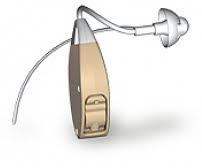Many people suffer from some form of hearing loss without realising it. As people get older the receptors inside the ear become less receptive causing hearing loss. There are a number of pointers to indicate if you are suffering hearing loss, many of which you may not recognise yourself, but will be noticeable to your friends or relations.
If you are finding it difficult to hear individual voices in a crowd because of background noise.
You continually ask people to repeat what they are saying.
You need the television or radio sound to be turned up and therefore making it too loud for others in the room.
You find it difficult to hear the high notes in music.
If you recognise any of these symptoms or you are told about them it is most likely that you suffer some degree of hearing loss. The first step would be to visit your GP. To see if your ears are not blocked by wax or infection, which can be cured simply and effectively giving you back your hearing. If this is not the case he will most likely recommend that you visit an audiologist for a Hearing Test . He will test your hearing using an audiometer.
An audiometer is a piece of equipment that produces various levels of sound over the full audio range of frequencies. The audiologist will sit you down in a very quite room and place a pair of headphones over your ears which are connected to an audiometer. He will then set the audiometer to a set frequency before reducing the sound levels. He will ask you to tell him when you can no longer hear the sound. This result is then plotted onto a graph called an audiogram. The frequency is then adjusted throughout the complete audio range in various steps, adjusting the sound at each step recording each result. The resulting audiogram will give a clear picture of where, across the full audio range, there is some hearing loss.
A hearing test can give a very good guide as to where you might be suffering some hearing loss but it is not an exact science as it relies entirely on your responses to the sounds being relayed to you. The audiologist relies on you to tell him when you can no longer hear the sound being relayed to you through the headphones and this could vary slightly depending on the environment and the equipment being used. However it is a very good indication and if it is decided you need a hearing aid to overcome the hearing losses indicated, it will most likely be a Digital Hearing Aid which can be set up to compensate for this loss. In some instances the Digital Hearing Aid may have to be adjusted a number of times before it meets your requirements in every day use.
However good a hearing aid is and how perfect it is set up it can never give you back your original hearing.
To find out more about hearing aids click Digital Hearing Aids
Wednesday, 2 December 2009
Subscribe to:
Post Comments (Atom)

No comments:
Post a Comment